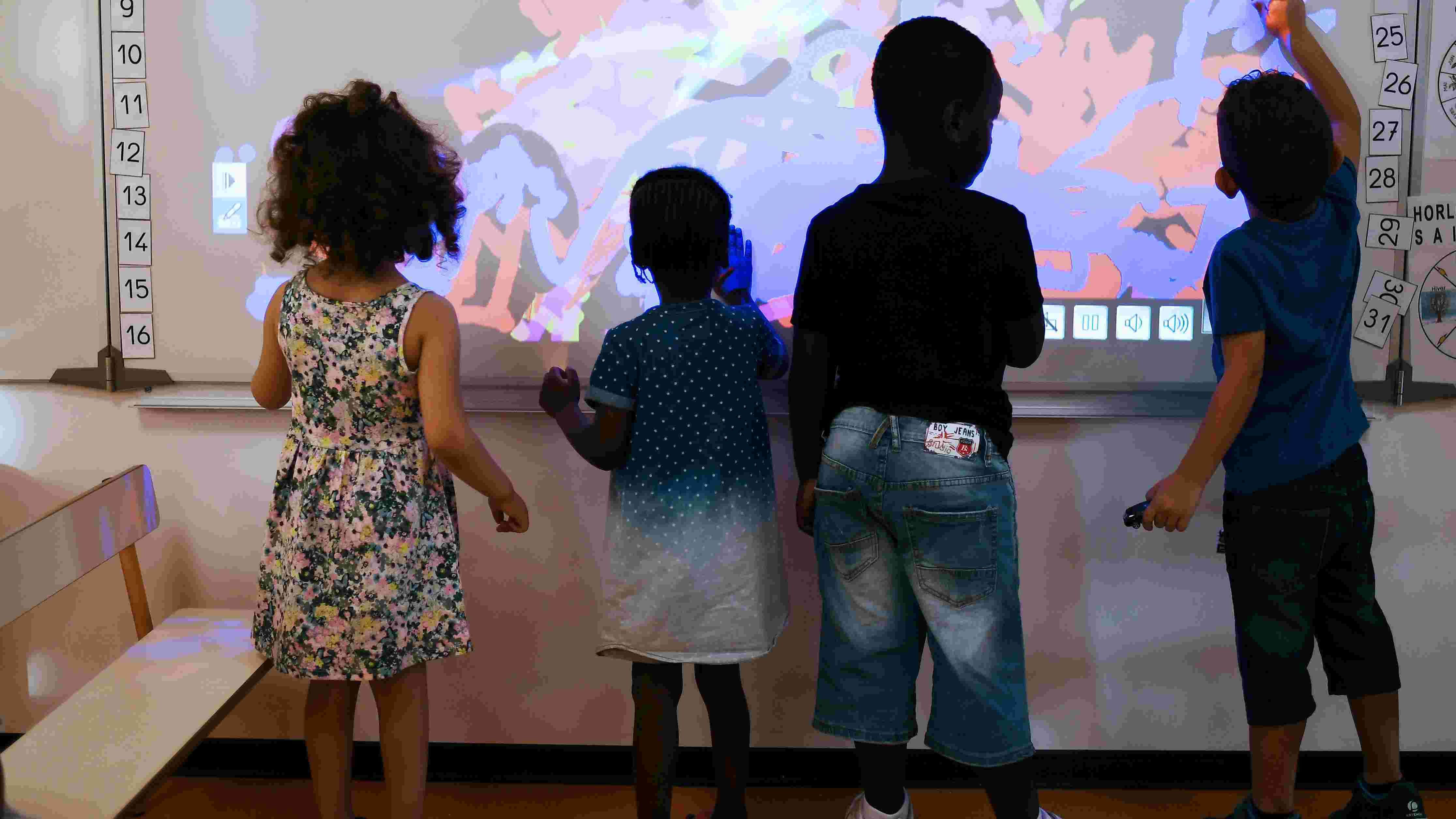Here comes Generation Alpha! It’s the start of a new school year for some Generation Alpha babies.
Born starting from 2011, these post-millennial babies are the first generation to live their entire life in an ever changing hyper-connected digital world. With 2017 marking their first steps to school, the Generation Alpha parents are faced with a different set of concerns than parents in previous years.
World Economic Forum held a briefing on Digital Intelligence (DQ) this past May and discussed the scale of problems and challenges that Generation Alpha will face in this coming digital revolution. Park Yuhyun, a doctorate in Biostatistics at Harvard University and founder and Chief Citizenship Officer for DQ Institute, spoke at the forum and addressed some of the issues the parents and kids will have to adapt to in the new digital space.
Park believes that the most concerning challenge for Generation Alpha’s future will be the “the lack of humanity in our digital world.” She continues, “The worldwide statistics (reports), 90% of children have come across hatred, bigotry, and racist comments and content on the Internet, and also around 40% of the children around the world have experienced cycle bullying, and 10% of the children can be diagnosed as pathological game and Internet users.”

Students use Ipad digital tablets at the British School of Paris, on December 3, 2012, in Croissy-sur-Seine, east of Paris. AFP PHOTO / FRED DUFOUR FRED DUFOUR / AFP
Students use Ipad digital tablets at the British School of Paris, on December 3, 2012, in Croissy-sur-Seine, east of Paris. AFP PHOTO / FRED DUFOUR FRED DUFOUR / AFP
According to the
DQ Impact report provided by DQ Institution, there’s an urgency for children, eight to 12 years old, to learn the core basic digital skills to be able to handle themselves properly online and offline. The report also noted that by the age of eight to nine years old, 52% of children already have their own mobile device – either a tablet PC or phone. Ownership of these devices allows most young users unlimited access to the digital world at almost any time and any place.

A Uchida Yoko employee demonstrates the company's latest educational products at a digital education exhibition in Tokyo on September 22, 2010.
A Uchida Yoko employee demonstrates the company's latest educational products at a digital education exhibition in Tokyo on September 22, 2010.
Plans for teaching Generation Alpha
The challenges with teaching young kids about proper online behavior can be difficult when they already have access to digital screens at such an early age. Dr. Janil Puthucheary, the Senior Minister of State at Ministry of Education and Ministry of Communications and Information also spoke at the forum from an educator’s position. He spoke about Singapore’s education system how they will integrate DQ into their curriculum.
Dr. Puthucheary mentioned, with the digital revolution expanding quickly, “we have to teach the children how to embrace it in a positive way… they need to be able to learn and navigate the downside and risk.” The educational space could be a great tool to help develop core skill-sets and give the kids a deeper understanding of the impact the digital world has on their lives.
Dr. Puthucheary continued, “the use of these technologies needs to be pervasive within our education space. The more unfamiliar it is, the more it becomes a special treat or an exotic part of their education…The more they use it as a matter of cost; they will learn those self-regulatory skills. They will have a sense of what is normal and abnormal in their interactions.”

Pupils from Light House Grace Academy use the Kio tablet created by the local technology company BRCK Education during a class session in Kawangware, Nairobi on October 16, 2015.
Pupils from Light House Grace Academy use the Kio tablet created by the local technology company BRCK Education during a class session in Kawangware, Nairobi on October 16, 2015.
Core basic digital skills we should teach our kids
Yuhyun believes improving the child’s DQ is key. According to the
DQ Institute and the
World Economic Forum, here are eight core digital skills you can teach your kids as they grow in a robotic environment.
Digital identity: The ability to understand the value of creating and maintaining a healthy identity on and offline.
Digital use: The ability to learn to focus and concentrate while using digital devices and media tool to help maintain a balanced online and offline lifestyle.
Digital safety: The ability to understand how cyber bullying can harm others and how to manage problematic content as well as avoid the risk online.
Digital security: The ability to protect your personal information from thieves, and to understand how to use online security tools.
Digital emotional intelligence: The ability to be empathetic and towards others needs and feelings online.
Digital communication: The ability to communicate and create partnerships with others online using digital tools.
Digital literacy: The ability to create, find and share content while showing competency in computational thinking.
Digital rights: The ability to under their legal rights online for privacy management, intellectual property, freedom of speech and protection from hate speech.
In almost every element of our lives – school, job, social, and even our digital lives – will be influenced by what we read, eat, and the activities we choose to participate in via our digital world. Teaching the children these basic skills can only help them lead a well-balanced healthy lifestyle in the new digital space.





